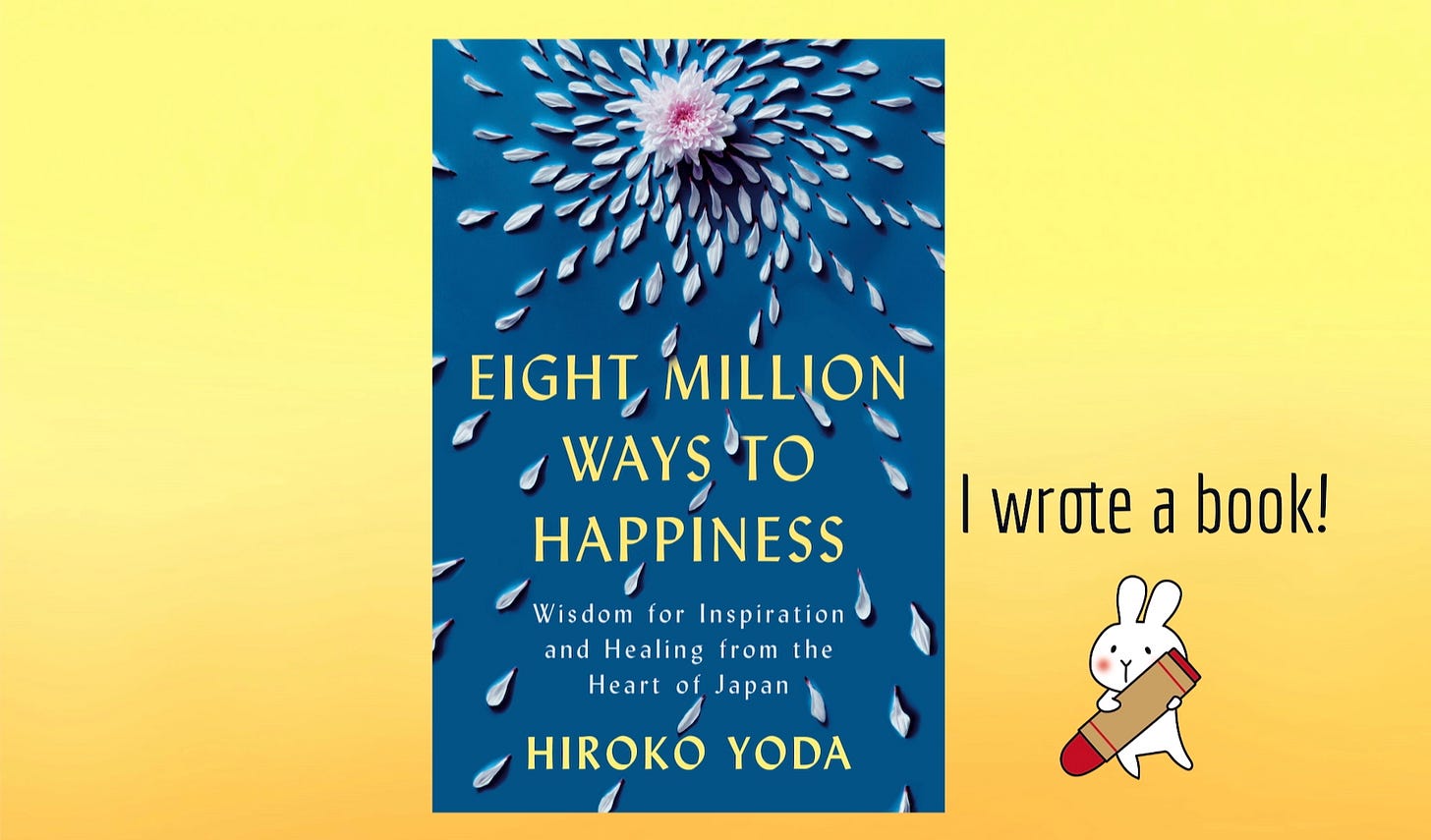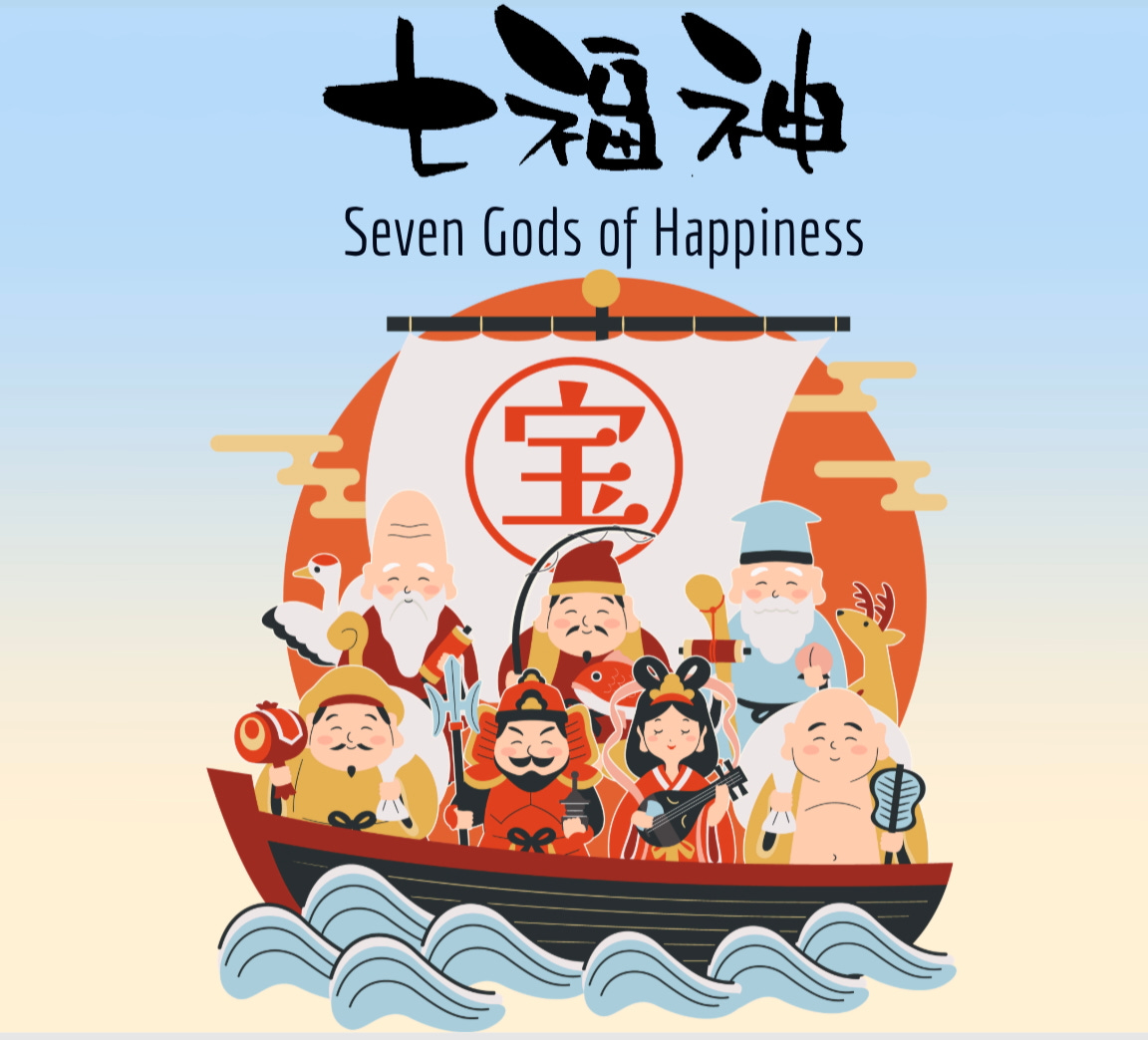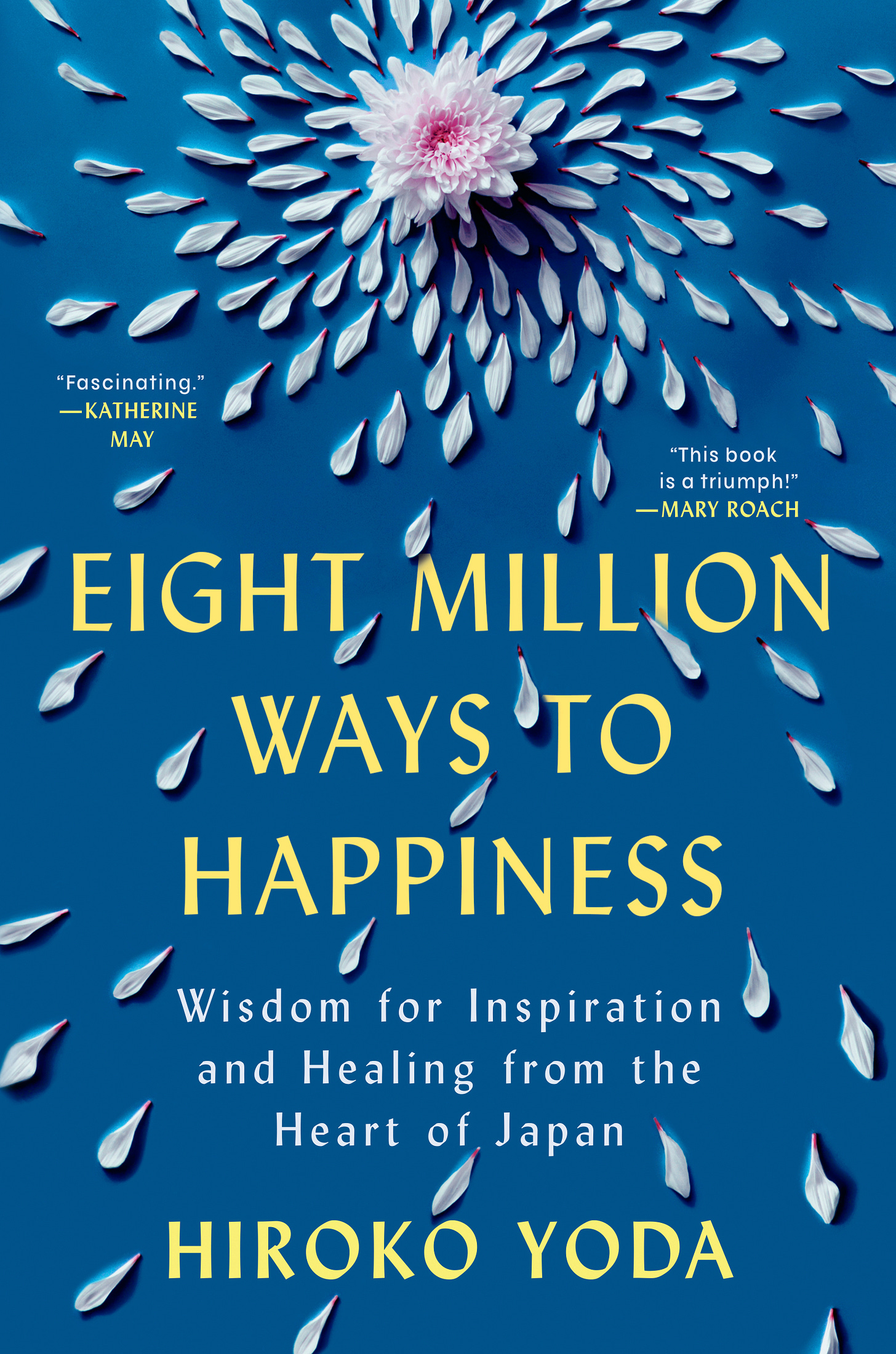Eight Million Ways to Happiness
Announcing my new book, coming out later this year!
I have written a book! And I am excited to reveal the cover to you for the very first time. Eight Million Ways to Happiness: Wisdom for Inspiration and Healing from the Heart of Japan is coming out on December 30th, 2025, from the fine folks at Tiny Reparations Books, but you can pre-order it at the link above (and I’d greatly appreciate if you would!)
Eight Million Ways to Happiness is the culmination of more than a decade of research, exploration, and living. It is a story of re-connection, as I traveled Japan to explore my nation’s patchwork of spiritual traditions after the loss of my mother, and later my father. It’s a cultural history of the Japanese spiritual landscape, and also something more: a roadmap for those questing for meaning in the modern world, but who shy away from locking themselves into any specific faith.
The book’s title comes from the Japanese idiom yaoyorozu no kami, literally “eight million kami,” kami being what we call spiritual beings in Japan. Once, we saw them in everything: the heavens above, the ground below, the trees, the rocks, the rivers, the seas, the tools we used, even the words we speak. To us, eight million isn’t a strict accounting. It is an awed description of an uncountable multitude of incredible diversity, of a spiritual space defined by incorporation rather than rejection.
Even still, I wouldn’t blame you if you found the title a little shocking. I remember the first time I mentioned it to a friend.
“Eight million?” he practically gasped. “Don’t you think that’s too many?”
I quickly explained that the book’s title was taken from the idiom, in a poetic sense, not as a literal reckoning.
“So what it really means,” I continued with a smile, “is an indefinite number of ways to happiness!” But his expression remained so quizzical that I started laughing, which made him start laughing, too.
That laughter is really what this book is about. That positivity in the face of complexity and uncertainty.
Many books treat Japan as an exotic subject, but Eight Million Ways to Happiness is the first to focus on Japanese spirituality as it manifests in daily life — sometimes obvious, sometimes subtle, but always comforting and inspiring.
In Japan, religion co-exists with modern society in ways quite different from that of the West. Our spirituality hides in plain sight, quietly, like the air we breathe, invisible yet equally precious and essential. It inspires so much of what the world loves about Japanese culture traditional and pop, fueling connoisseurship and craftsmanship, nourishing cleanliness and cuisine.
Because of this, I never really paid much attention to my country’s spiritual traditions growing up. Everything changed with the devastating loss of my mother. Desperate to ease my pain and sorrow, I began taking long walks in a local park. It was there, surrounded by trees and life, immersed in the cycles of the seasons, that I began to heal. And I sensed something more: a quiet pulse beating just beneath the surface of my culture. Was this what the eight million kami were about? I needed to know more.
My research took me to some extraordinary places. I followed a monk through a labyrinth of caves to reach an ancient altar hidden deep within a mountain. I ascended to the dizzying heights of a sacred waterfall to watch priests conduct a ritual few outsiders are ever permitted to see. I traveled to places holy and haunted. At the climax, in snowy northern Tohoku, I made contact with a ninety-year-old itako spirit medium, the last of her kind, to experience traditional ways of re-connecting with those we’ve lost.
I think you’ll come to the same epiphany I did: that Japanese spirituality isn’t just for one country or people. It’s relevant for everybody, because it is radically inclusive, and rooted in something that everyone can share: a sense of gratitude for existence itself. That provides the foundation to center ourselves, to nourish and uplift, even as we go through difficult times.
Let me give you one example from my book. There’s a particular group of kami known as the Seven Gods of Happiness, popular in Japan for centuries. They’re deities from different spiritual backgrounds, male and female, domestic and foreign, sailing the seas to bring fortune to all who welcome them. Their example goes beyond mere tolerance; it’s a hint that we’re all in the same boat, too, and when we embrace differences it makes us stronger — and happier.
Eight Million Ways to Happiness: Wisdom for Inspiration and Healing from the Heart of Japan will be published on December 30th, 2025. If you’ve enjoyed my newsletter, you’ll love the deep dives this book affords me the luxury of bringing to you. It is my honor to be your eyes and ears on a journey through Japan’s spiritual terrain, and if you’d like to join me, you can preorder my book here, or at your favorite bookstore. Thank you!





This sounds so fascinating!
Congrats Hiroko!